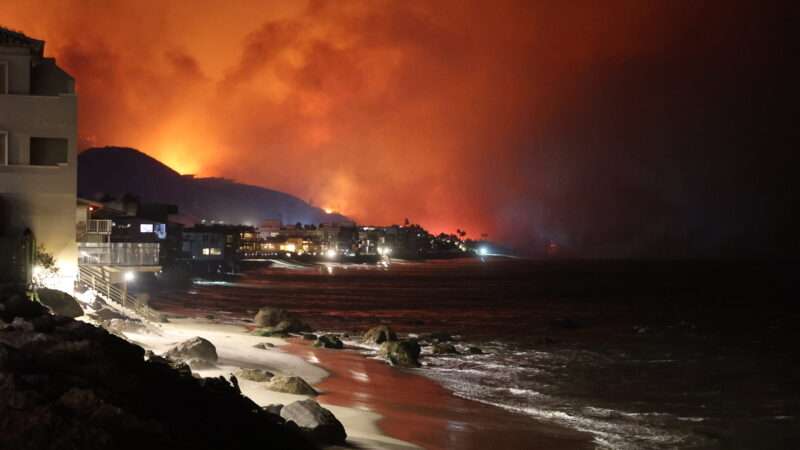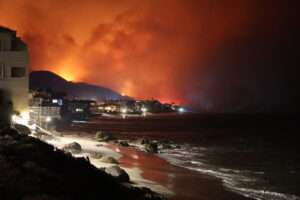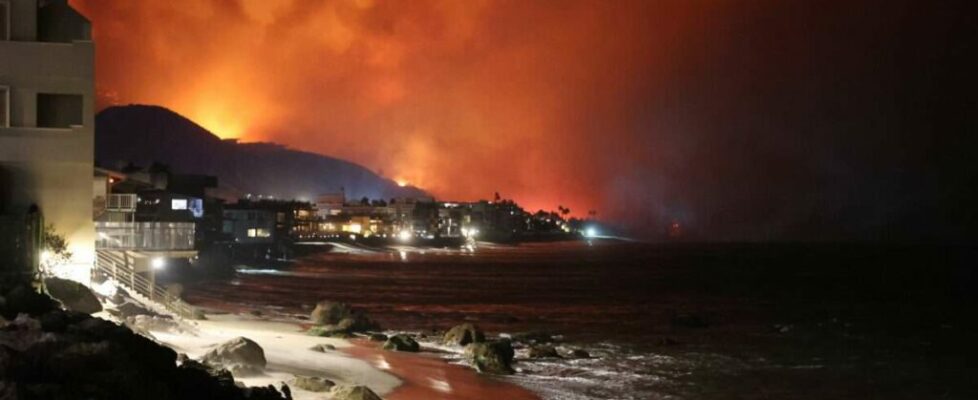Easing Zoning Restrictions Can Facilitate Rebuilding After the LA Fires


Much of the debate over the horrible wildfires afflicting the Los Angeles areas focuses on issues outside my expertise. Thus, I’m not going to opine on such questions as the role of climate change in causing the fires, and whether federal, state, and local governments, have done a good job of running the LA fire department and managing wildfire risk moe generally. There is enough ill-informed pontification on these issues already. One relevant issue, however, is within my expertise: zoning and housing policy. Easing zoning restrictions on housing construction could help the city rebuild faster and find new homes for those displaced by the fires. It could also help alleviate the area’s longstanding housing crisis.
Even before the fire, the LA region had a serious housing shortage, caused in large part by exclusionary zoning. Some 78% of the residential land in LA is zoned for single-family residences only, which makes it extremely difficult to build new housing in response to demand, especially multifamily homes affordable for working and lower-middle class people.
The fires have destroyed an estimated 12,000 structures, a figure that is likely to rise before the conflagration ends. Not all these structures are homes. Some are garages, commercial buildings, and other nonresidential facilities. Nonetheless, there is no doubt the fires have wiped out thousands of homes, displacing tens of thousands of people. And while much media attention has focused on the losses suffered by wealthy Hollywood celebrities, most of those displaced are less affluent folk who cannot easily find new homes.
Zoning and housing expert M. Nolan Gray (in the Atlantic), and Reason writer Jack Nicastro have helpful articles summarizing how exclusionary zoning rules have contributed LA’s housing crisis, and how easing them will make it easier to rebuild. They also explain how zoning restrictions made the region more vulnerable to wildfires, by pushing development into more dangerous areas, and making it difficult or impossible to build more fire-resistant housing.
California Gov. Gavin Newsom recently issued an executive order suspending some types of regulatory obstacles to housing construction in areas affected by the fire, such as burdensome review under the California Environmental Quality Act (CEQA). That’s a step in the right direction. But it’s impact will be very limited unless state and local governments also suspend zoning restrictions that make it difficult or impossible to build multifamily housing throughout much of the region.
Moreover, Newsom’s order also extends enforcement of anti-“price gouging” restrictions in the affected area. Such laws prevent sellers – including providers of construction materials – from raising prices in regions affected by natural disasters. As economists have long pointed out, such restrictions make reconstruction more difficult by reducing incentives for suppliers to increase delivery of needed goods.
In the aftermath of the fires, construction supplies will be more needed in LA than in most other regions. We want prices in the area to rise, so that producers will get the signal to send more of these types of goods there. Price controls will only exacerbate shortages, and make rebuilding take longer.
In a recent Texas Law Review article my coauthor Josh Braver and I have argued that exclusionary zoning restrictions on housing construction are unconstitutional violations of the Takings Clause of the Fifth Amendment. For a more succinct summary of our argument, see our June article in the Atlantic.
The post Easing Zoning Restrictions Can Facilitate Rebuilding After the LA Fires appeared first on Reason.com.
